Feeling duped by Amazon's "magical AI" bullshit
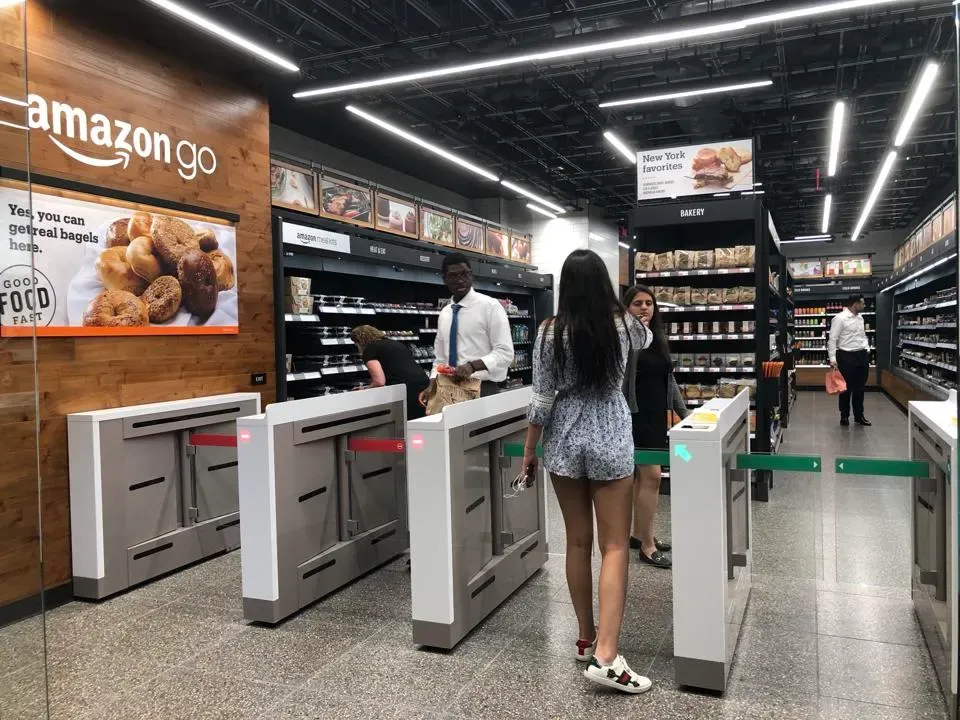
Back in the Summer of 2019, I was in Seattle doing customer interviews for work, and I stopped by a friend's apartment in downtown Seattle. I spent a few hours there while using his wifi along with a spare desk. Nothing was too unusual until I went to buy a USB cable I needed back at home so I pulled up Amazon.com.
I was surprised to see—due to my temporary local downtown Seattle IP address—my Amazon home page had new options. I showed my friend and he spun his laptop around to show his homepage, which had even more options for products and services only available within Seattle proper.
Most of it was stuff like groceries delivered within minutes, or headphones you could get in an hour instead of relying on overnight shipping. Some of it was experimental betas of pet products and healthcare but then I saw a banner for the Amazon Go store.
I remembered it had launched the year before and I was curious about this weird new store concept. The conceit was: you walk in, grab what you need, then walk out and as you hit the sidewalk you get charged on the Amazon app for any items you took with you. Seamless, fast, and the ultimate in convenience was the promise.
My friend said he tried it once, thought it was strange but an ok experience and mentioned it was a couple blocks away so we could check it out later if I wanted. Immediately, I said let's go NOW. So we did.
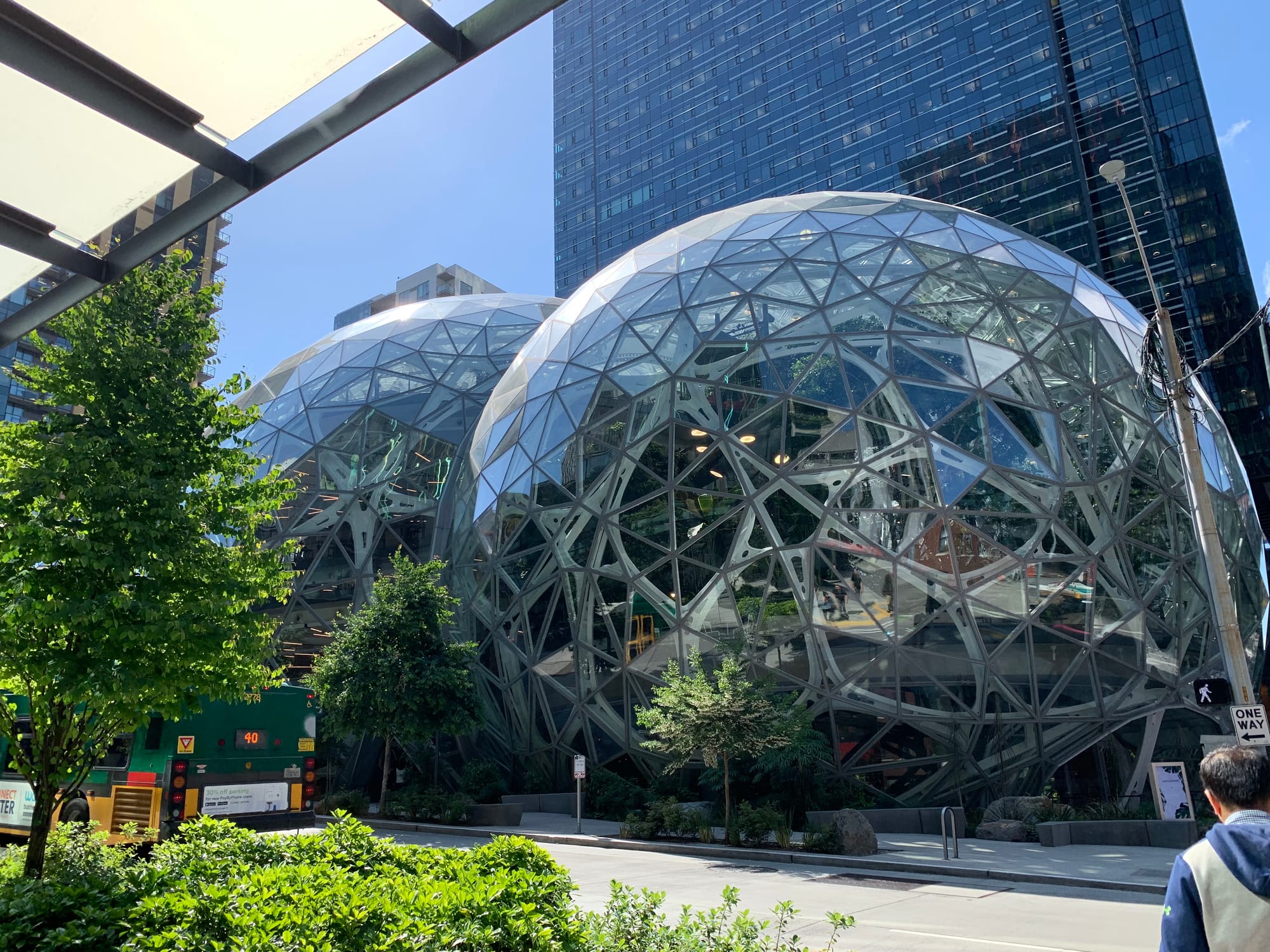
I floated along the sidewalk all the way. I'd been hearing about this technology for decades. I remember being a little kid in the 1980s and hearing bar codes were more complex and powerful than we thought and someday soon you'd go to a grocery store, load up your cart, skip any checkout and just head to your car and it would know everything you bought based on those new, smarter bar codes. There were a bunch of AT&T ads in the early 1990s that also promised this kind of future, and how it was always just around the corner.
But there I was in Summer of 2019 and the giant leaps in convenience were already here, just a block away in the Amazon Go Store I was about to enter (LITERALLY JUST AROUND THE CORNER). I was jazzed as hell and couldn't wait to see what the experience was like.
I remember it vividly. There were stainless steel turnstiles at the front and a person in an Amazon polo shirt telling us to download a new Amazon Go app so we could beep our way into the store to let it track us.
It was a brightly lit, well-stocked convenience store with good brands and I looked for snack options, eventually grabbing an egg salad sandwich off a shelf but changed my mind and instead opted for some prosciutto-wrapped cheese sticks and a can of seltzer. As I started to head out I asked my friend "so we just go now? really?" and he said yeah. I wondered if I would be charged for the sandwich I put back on the shelf.
The store had a very small staff, just the one greeter at the front and a security guard near the exit. They told people you really could just leave and on my way back to the apartment I saw a charge from amazon for seven dollars and something cents for my items. I noticed the charges were only for the two things in my hands, which was cool, as it was smart enough to not charge me for the sandwich I didn't ultimately take.
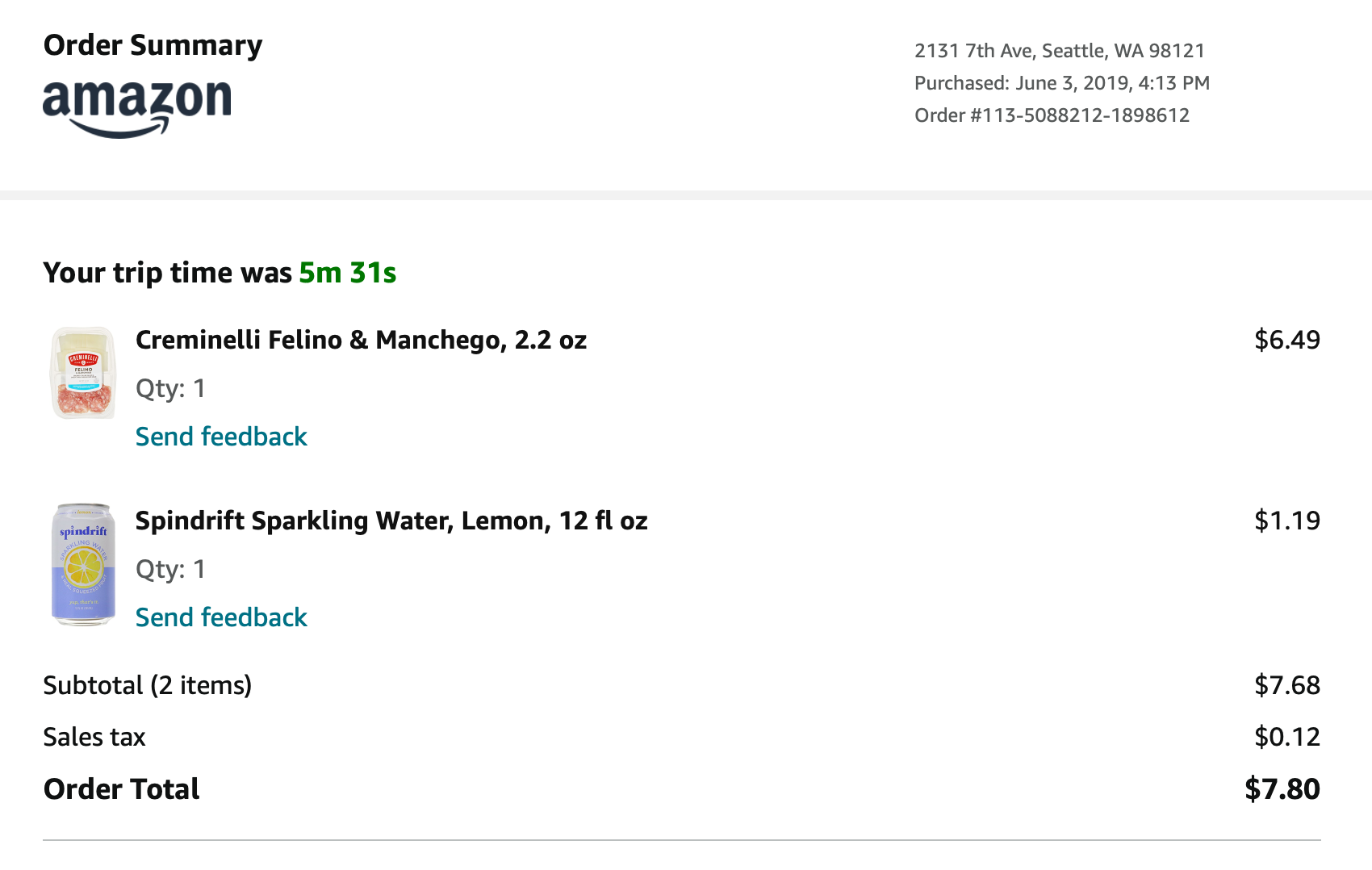
At the time, Amazon's marketing push around the Go store was how technologically advanced it all was. They said they put weight sensors on every shelf for every item. You beeped your QR code on the way in, and perhaps through a mix of Bluetooth and RFID and NFC it could track your in-store movements and match it with shelf sensors whenever you grabbed items. You left through a magical set of turnstiles that beeped you out and figured out what you touched and carried out while you were in there.
It was all very futuristic and honestly, felt that way using it in 2019. It really was fast and convenient and even though the tech seemed far-fetched it seemed just about plausible. Maybe this really was the future of shopping?
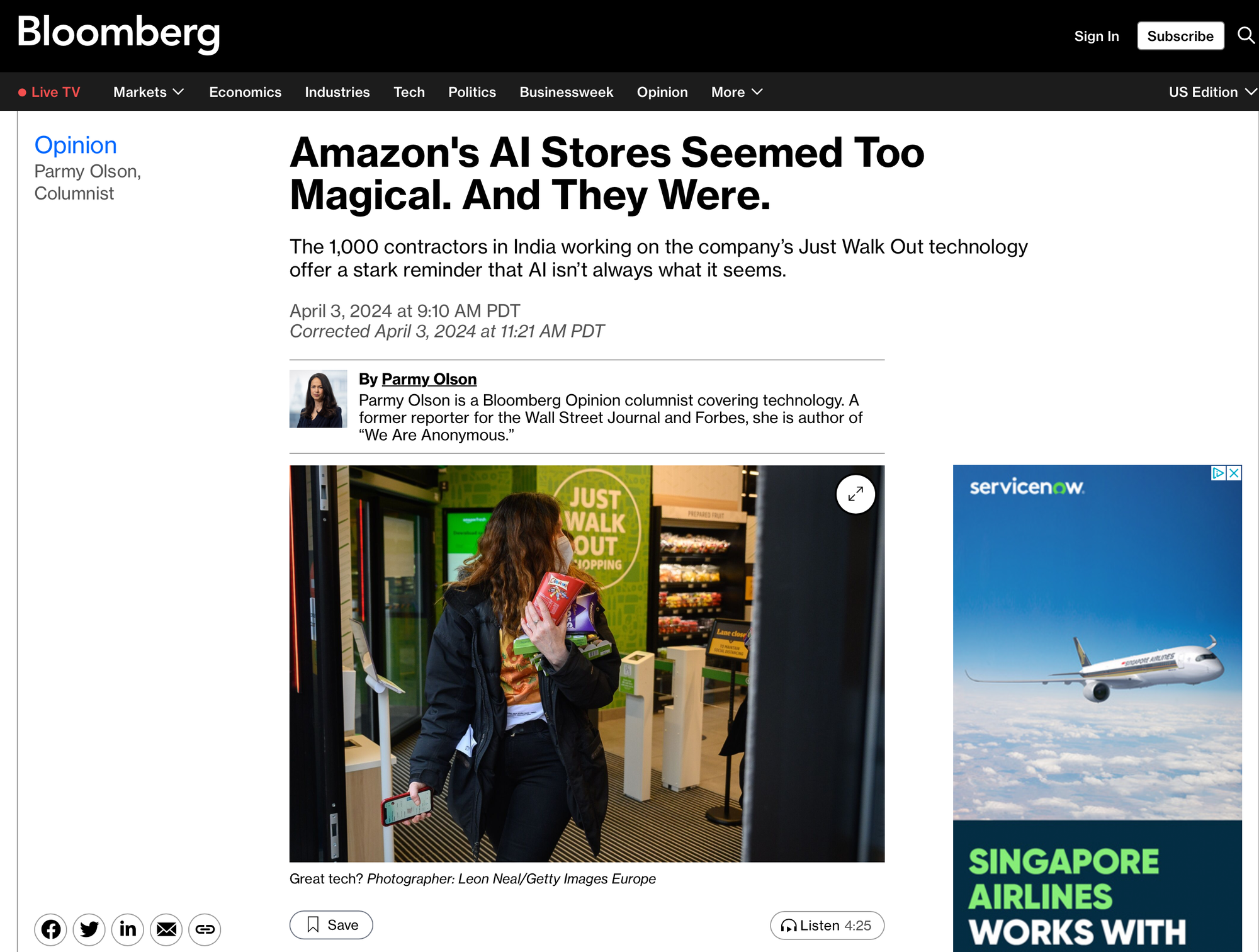
You probably heard the news a couple weeks ago that Amazon was shutting down its Go Store concepts and in the small print they revealed there were actually about 1,000 workers behind the scenes, staring at cameras all day in a room in India that played live video from inside Amazon's stores that made the "magical AI" possible to run a Go store.
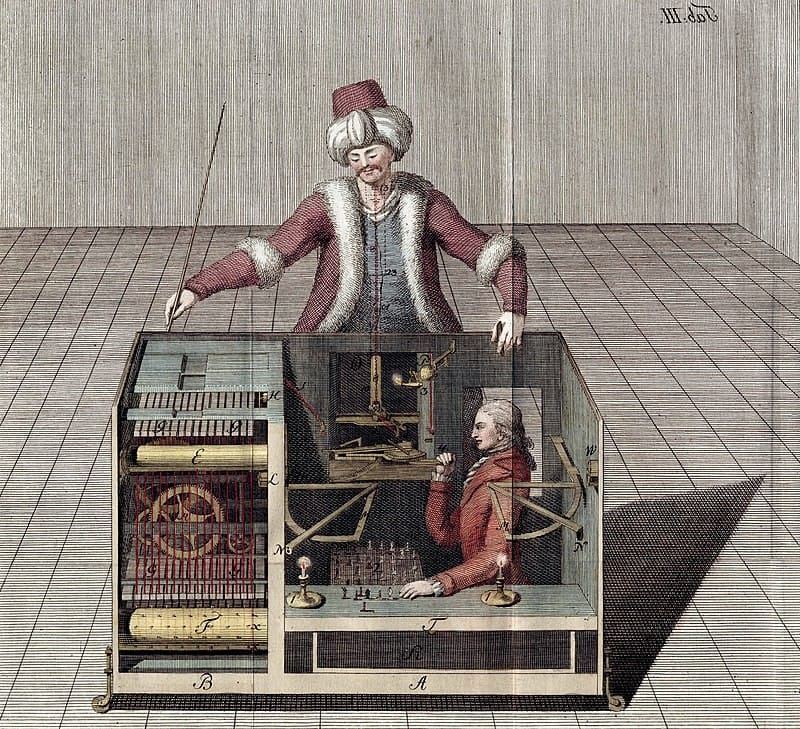
It's funny because it's a pattern that has repeated for hundreds of years. Someone debuts an incredible new technology, but eventually the public finds out it was a trick all along. The origin of this is the chess-playing robot that toured around the world beating grandmasters in the 18th century until it was revealed to not actually be a real Turkish robot, but a guy hidden inside a box controlling a puppet that appeared to make the moves.
A Mechanical Turk they called it. Strangely, that's what Amazon calls their own service that is powered off the backs of a virtual army of people completing anonymous small tasks who get paid pennies to click a button or answer a question hundreds of times a day.
The entire premise of the Amazon Go store was faster, easier shopping in a setting that requires much less store labor, all because weight sensors and cameras would figure out what customers bought and charge them appropriately without the need for checkout workers.
In the end, it was just a fake tech demo, with a thousand off-shore contractors behind the curtain doing all the actual work promised by tech. There really weren't any shortcuts in this kind of innovation.
Honestly, I felt duped and cheated after hearing the Amazon Go news earlier this month. I'm big into the Internet of Things and I've followed home automation technology for years with lots of that tech in use in my own house today. Though the Amazon Go store seemed like magical hocus pocus at the time, it was conceivable that a combo of sensors and cameras could magically remake shopping and I was impressed with my experience after using it in Seattle.
I spent weeks afterwards wondering where this technology could best be applied. A faster shopping experience at a 7-Eleven wasn't really a thing I needed in my daily life, but as I was flying around for work, I thought an Amazon Go store in every airport could be amazing as you're often jumping off one plane to grab another, trying to grab a bottle of water and a pack of peanut M&Ms in the few minutes you have before your next flight boards.
That was the only "killer app" I came up with after my Amazon Go experience. It was the only place where time was so much of the essence and I could recall instances where I had to put down items I wanted to buy while stuck in a long line in O'Hare because my phone buzzed to tell me boarding started so I had to run to a plane instead. Amazon Go could have solved a problem in those situations.
I know innovation can be a messy business. And I know early betas can be "faked" or a temporary fix put in place at launch, with continued development slated for later. I've heard rumors the landmark January 2007 debut of the iPhone that much of what Steve Jobs showed on stage was faked. Some of the apps were just Steve swiping from one JPEG to another while acting like it was a functioning app (granted, the apps were built and shipped in the six months before the iPhone's product launch in June of 2007).
I'm not surprised to hear there were actually hundreds of pairs of eyes following my every move in that store, especially in 2019 when it was so new. What I find baffling today is hearing it never got better than that in six years of running the project? They never figured out reliable weight sensors? Or the use of local RFID/NFC tracking of customers? It really was people around the world staring at monitors and clicking boxes whenever a customer picked a product? How did it continue for so long in this iteration? Why wasn't it killed years ago?
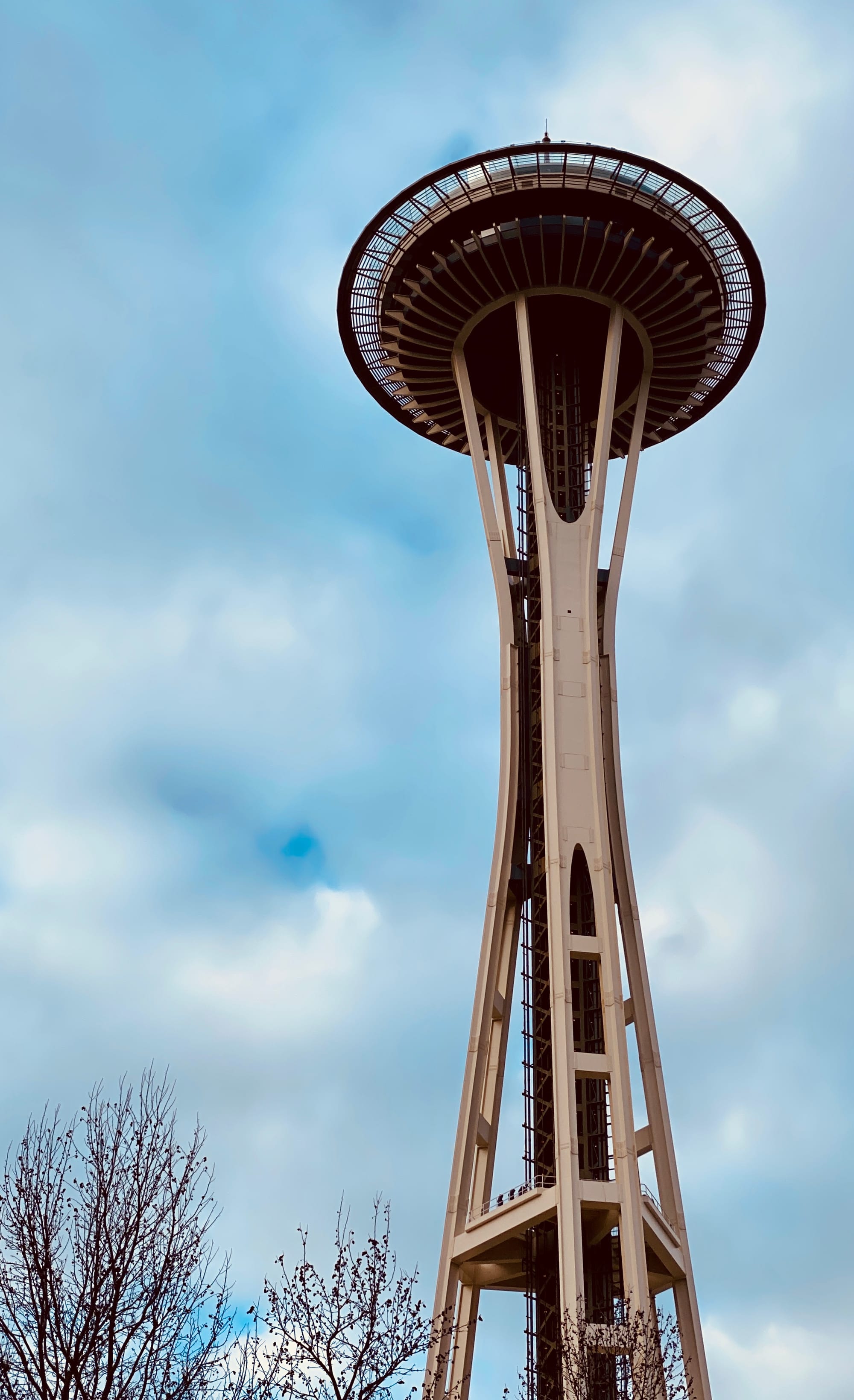
I still love following tech news and will continue to approach new innovation with a combination of curiosity and fascination, but I will always remember to bring a touch of skepticism to the table, since so many tech demos often end up hiding an ugly truth deep down.
Subscribe to our newsletter.
Be the first to know - subscribe today

